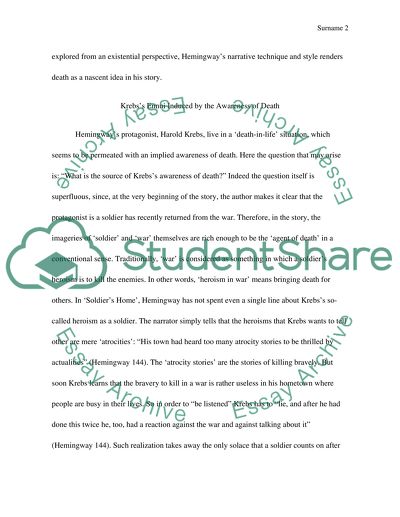Cite this document
(“Literary Essay on Hemingway's short story Soldier's Home”, n.d.)
Retrieved from https://studentshare.org/literature/1461648-literary-essay-on-hemingway-s-short-story-soldier
Retrieved from https://studentshare.org/literature/1461648-literary-essay-on-hemingway-s-short-story-soldier
(Literary Essay on Hemingway's Short Story Soldier'S Home)
https://studentshare.org/literature/1461648-literary-essay-on-hemingway-s-short-story-soldier.
https://studentshare.org/literature/1461648-literary-essay-on-hemingway-s-short-story-soldier.
“Literary Essay on Hemingway's Short Story Soldier'S Home”, n.d. https://studentshare.org/literature/1461648-literary-essay-on-hemingway-s-short-story-soldier.


